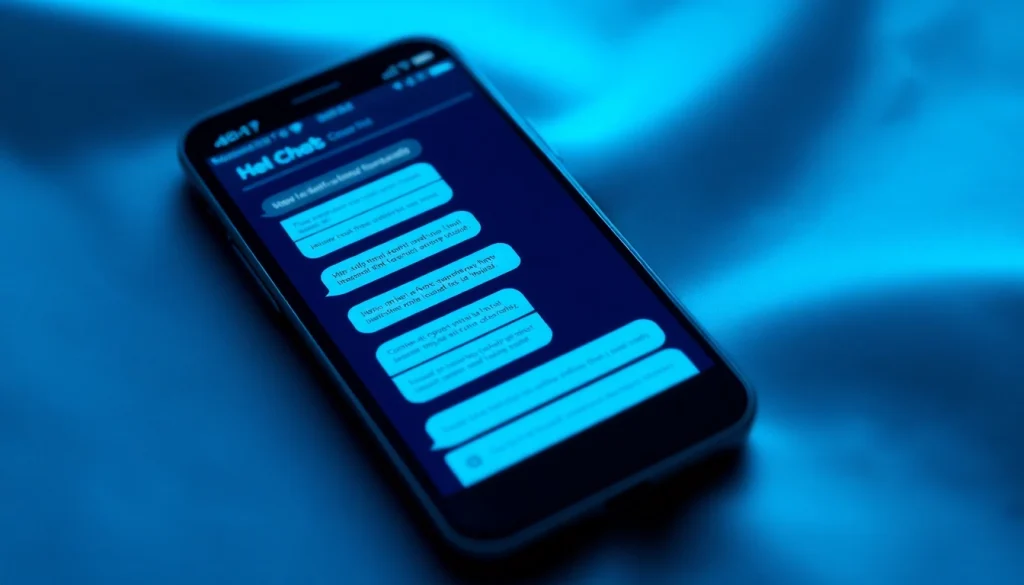The Role of AI Healthcare Chat Bots in Modern Medicine
As healthcare continues to evolve, technology has become a pivotal component in improving patient experience and operational efficiency. Among these technologies, the AI healthcare chat bot has emerged as a revolutionary tool that automates various elements of patient interaction while offering a seamless way for healthcare providers to manage their services. The integration of AI chat bots into healthcare facilitates immediate access to medical information and support, catering to the needs of both patients and healthcare professionals.
Understanding AI Healthcare Chat Bots
AI healthcare chat bots are advanced software applications designed to interact with users via natural language. They employ machine learning and natural language processing (NLP) to understand and respond to queries, thereby simulating a conversation with a human. By utilizing algorithms and data analysis, these bots can provide accurate medical information, assistance in scheduling appointments, medication reminders, and even preliminary diagnosis based on symptom input.
Benefits for Patients and Providers
The advantages of AI healthcare chat bots are manifold. For patients, they offer enhanced accessibility to healthcare services, allowing for 24/7 engagement without the need for human resources at all times. Patients can receive immediate assistance, whether it be answering frequently asked questions or guiding them through complex healthcare queries.
Healthcare providers benefit as well. By employing chat bots, healthcare facilities can significantly reduce the workload on staff, streamline administrative tasks, and allocate resources more efficiently. Additionally, chat bots can analyze patient data to filter essential information that requires human attention, thus improving the overall quality of care.
Future Trends in AI Healthcare Technology
The future of AI healthcare chat bots looks promising as integration with telemedicine expands and technological advancements continue. We can expect chat bots to evolve into more sophisticated tools equipped with emotional intelligence to handle sensitive patient situations. Furthermore, developments in generative AI will lead to chat bots offering tailored care management plans and health recommendations. Continuous machine learning allows these applications to adapt based on user data and interactions, resulting in personalized healthcare experiences that cater to individual patient needs.
Key Features of Effective AI Healthcare Chat Bots
Natural Language Processing (NLP) Capabilities
One of the core features that set high-performing AI healthcare chat bots apart is their NLP capability. NLP allows chat bots to understand and process human language intelligently. Effective chat bots are able to interpret user intent, understand context, and respond in a coherent and sensible manner. Advanced NLP capabilities ensure the chat bot can handle complex questions, follow-up requests, and even casual conversations related to health, making interactions feel more human-like.
User-Friendly Interfaces and Design
A user-friendly interface is essential for encouraging patient engagement. Healthcare chat bots should prioritize simplicity, allowing users to navigate through options without frustration. Visuals, such as buttons and quick replies, can enhance user experience by providing clear pathways for action. Additionally, personalized greetings and options based on users’ profiles or previous interactions create a more welcoming and tailored experience.
Integration with Healthcare Systems
Effective AI healthcare chat bots are not standalone applications; they require integration with existing healthcare systems, such as electronic health records (EHR) and practice management systems. This integration facilitates access to pertinent patient data, enhances response accuracy, allows for seamless appointment scheduling, and ensures continuity of care. Moreover, setting up these crucial linkages enables the chat bot to function as a bridge between patients and healthcare providers, facilitating smoother communication overall.
Implementing AI Healthcare Chat Bots in Your Practice
Choosing the Right Chat Bot Solution
With a growing number of providers offering AI healthcare chat bot solutions, selecting the right application requires careful consideration of several factors. Organizations should evaluate the bot’s NLP capabilities, integration readiness, compliance with healthcare regulations, and features specific to their operational needs. It’s important to look for bots that have been securely designed to handle sensitive patient information while still offering flexibility in customization and scaling.
Customizing for Specific Health Needs
Customization is crucial for maximizing the effectiveness of a healthcare chat bot. Different healthcare facilities have unique requirements depending on their specialization, patient demographic, or operational model. Personalizing the chat bot’s responses based on common inquiries within the practice, adjusting for medical jargon or layman’s terms, and programming it to address specific health needs or conditions can greatly improve the user experience and engagement level.
Monitoring Performance and Outcomes
After implementation, it is vital to continuously monitor the performance and effectiveness of the AI healthcare chat bot. Metrics such as patient satisfaction ratings, resolution times, engagement rates, and frequency of human intervention should be regularly analyzed to assess the bot’s value. Feedback from users can help providers make necessary adjustments, optimize design and functionality, and enhance interaction quality.
Challenges and Ethical Considerations
Data Privacy and Security Concerns
While AI healthcare chat bots provide numerous benefits, they also raise significant data privacy and security concerns. Handling sensitive health information mandates strict adherence to regulations, such as HIPAA in the United States. Organizations must ensure that the chat bot incorporates robust encryption, secure connections, and data anonymization techniques to protect patient information from unauthorized access and breaches.
Limitations of AI in Patient Care
Despite their advanced capabilities, AI healthcare chat bots have limitations, particularly regarding complex medical scenarios. Chat bots may struggle with nuanced medical queries that require professional judgement or a deep understanding of intricate health conditions. Misdiagnosis or inaccurate advice can adversely affect patient care; hence, organizations must establish protocols for when and how to involve human healthcare professionals in the patient interaction process.
The Importance of Human Oversight
Human oversight remains a critical component of patient care, even in a technology-driven environment. While AI chat bots can handle many tasks, the necessity for patient interaction with a live healthcare provider cannot be overlooked. Regular reviews of chat bot interactions, combined with a framework for escalating critical cases to human professionals, is essential for ensuring high-quality patient care and maintaining trust in the healthcare system.
Case Studies: Successful AI Healthcare Chat Bot Implementations
Case Study 1: Improved Patient Engagement
A prominent healthcare provider based in New York implemented an AI chat bot that significantly improved patient engagement. By integrating the chat bot into their website and mobile application, they were able to reduce patient queries and waiting times at their call center by over 40%. The bot provided 24/7 responses to frequently asked questions, assisting patients in understanding their treatment plans and managing medication schedules. Feedback indicated that patient satisfaction increased due to quicker access to information, resulting in better compliance with prescribed therapies.
Case Study 2: Streamlining Administrative Tasks
A large medical group in California utilized an AI chat bot focused on administrative functions. By allowing patients to book, reschedule, and cancel appointments through the chat interface, they drastically reduced the overflow of calls to their administrative staff. This efficiency not only saved time and resources but also allowed healthcare personnel to dedicate more time to direct patient care. As a result, their annual administrative costs were reduced by approximately 25%.
Case Study 3: Enhancing Telemedicine Services
In the wake of the COVID-19 pandemic, a telehealth provider incorporated an AI chat bot to manage the influx of patients seeking virtual consultations. The chat bot triaged incoming queries, directing patients based on urgency and medical needs. It provided pre-consultation checklists to ensure patients had all necessary information ready for their appointments. The conversion rate into actual telehealth consultations rose by 50%, showcasing the chat bot’s efficacy in handling and maximizing potential patient interactions.


